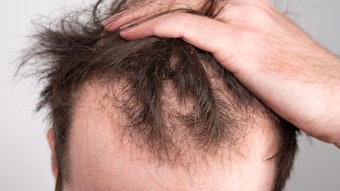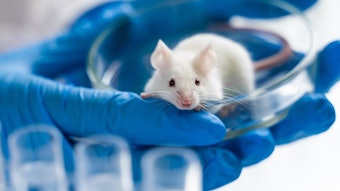
Editor's note: The "Words from Wiechers" article series considers the many lessons the industry can learn from the late Johann Wiechers, Ph.D. He was an advisor, colleague and insightful leader in the industry until his unexpected passing. Presenting Wiechers's insights is IFSCC Education Chair Anthony J. O'Lenick, Jr. This month, he reviews chapter 54, "Is Cosmetic Science Really 'Bad?'" published in Wiechers's Memories of a Cosmetically Disturbed Mind and, originally, in Cosmetics & Toiletries.
This column will continue to look at how Wiechers saw our industry in 2010, and how that observation might have changed over the intervening time. Johann began as follows.
Science in Cosmetics
"My question today is: Is the claimant employing the accepted rules of reason and tools of research, or have these been abandoned in favor of others that lead to the desired conclusion?"
"I would like to state that almost the opposite is happening in our industry. We do our utmost to portray a scientific image. Note the number of articles in trade magazines that quote Nature and Science, whereas we all know that these high impact scientific journals do not deal with cosmetics. We do this because we want to create the impression that we are very scientific!
"Another example of (sometimes not) 'employing the accepted ... tools of research' is the use of questionnaires in clinical testing. Questionnaires can be leading, sometimes even misleading. Tell a person s/he is testing antiwrinkle products and any product will work (to some extent). Referring to Perry Romanowski’s comment [in a] LinkedIn discussion, this is what I would like to call the 'gullible consumer' effect. Some consumers believe everything because they want to believe everything.
"Of course, questionnaires can be constructed in 'good' and 'bad' manners, but the objective nature of skin bioengineering equipment is preferred. Everybody will accept that an instrument is more objective than asking a volunteer 'whether she felt better after having used the product.' But, to quote the great Professor Albert Kligman: 'A fool with a tool is still a fool!'"
"To state that our industry is consistently abandoning the rules of science to lead to the desired outcome is simply inappropriate. But the way we do our research is not always good, in the scientific sense. This is not in the way we do our research, but the things we decide not to investigate (or decide not to report). Nobody likes to tell the boss that something did not work."
Commercial vs. Academic Science
"We all know how data are 'massaged,' not only in the cosmetic industry but everywhere. You and I will always aim to portray ourselves or our data in the best possible way. But you pass the line when you make things up or deny things when asked. I have sufficient evidence of our industry not telling 'the other side of the coin,' but no evidence whatsoever of consistently abandoning the rules of science to lead to the desired outcome.
"This relates to another question: Has the claimant provided a different explanation for the observed phenomena, or is it strictly a process of denying the existing explanation? Because we are all confirmation-biased to some extent, this is somewhere each one of us can easily go wrong. Especially because cosmetic science is a commercial science. Why? Academic science is done for finding out how 'things' work, and to test or deny a hypothesis, whereas commercial science is science done for finding reasons for selling your product, mostly to find out how good your 'thing' is relative to nothing or benchmarks."
'We have a right to expect the claims on a cosmetic product to be transparent and that the product works, but drugs are held to a higher standard, since the lack of performance for drugs is so much more catastrophic.'
"A large proportion of us are doing science to sell products and not to explain things. Cosmetic science is therefore very often comparative science (how good is my product or my ingredient doing relative towards my competitor’s product or ingredient) instead of explanatory science (how does my product work).
"Manufacturing cosmetic firms are selling action and not mechanisms of action. Ingredient suppliers are selling mechanisms of action as they are part of the marketing concept. Ingredient suppliers therefore offer more explanation (which, let’s face the fact, we often accept for granted) than the manufacturing industry. So, again, we are doing OK here. Not better than the rest of the industry but simply in line with the rest because we normally do not offer explanations as to how our products work.
"Sometimes, it is the reverse. We offer the explanation (currently genomics and proteomics) without offering the observed phenomena. We then sell the explanation (based on in vitro evidence of up- and down-regulation of various enzyme systems) without providing the in vivo evidence for the efficacy of the product. Reasons given include the fact that biopsies need to be taken on the face, which is ethically not acceptable. That does limit the commercial value of the product, but that does not devalue the cosmetic science of such products."
The Lesson
Wiechers presents a lot of information condensed into these few paragraphs. Firstly, I certainly agree that the statement: Is the claimant employing the accepted rules of reason and tools of research, or have these been abandoned in favor of others that lead to the desired conclusion? is incorrect for scientists. However, the topic probably needs to be extended to include the review of the data. Generally, the data is not peer-reviewed by a non-participatory chemist. This means the claim may or may not be as justified as it would be in a peer-reviewed process.
That being said, the nature of the claim and the importance of the psychology of the claim also must be considered. We must differentiate a cosmetic claim from a drug claim. If we claim our product minimizes the appearance of wrinkles, part of the appeal of the product is performance (what Wiechers called matter claims) but the other part is how that product affects consumer perception and self-esteem. We cannot minimize this critical aspect.
With drugs, the treatment or diagnosis of disease has dires consequences if the product fails to act as the manufacturer claims. This is criticality absent in cosmetic products that treat appearance. The existence of drug actives and cosmetic actives is real. Cosmetic actives are the topic of cosmetic claims (appearance) and drug actives are the topic of drug claims (health). The mere application of the cosmetic product can increase oxytocin levels and, in fact, provide a psychological boost. If the claims are adequately transparent, and the benefit (matter or mind-based) is actually achieved, the product is successful.
If on the other hand, if the product fails consumer expectations, the customer does not buy the product again. We have a right to expect the claims on a cosmetic product are transparent and that the product works, but drugs are held to a higher standard since the lack of performance for drugs is so much more catastrophic.










